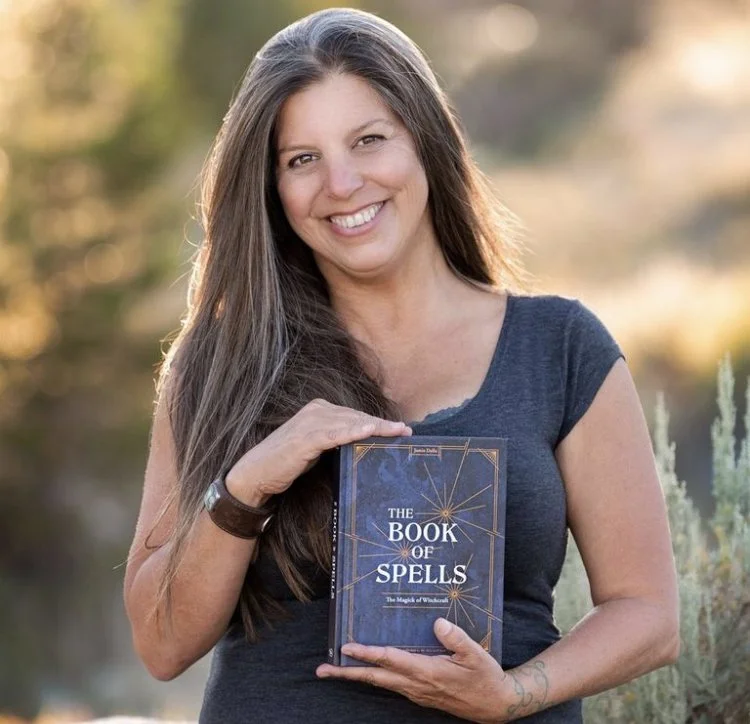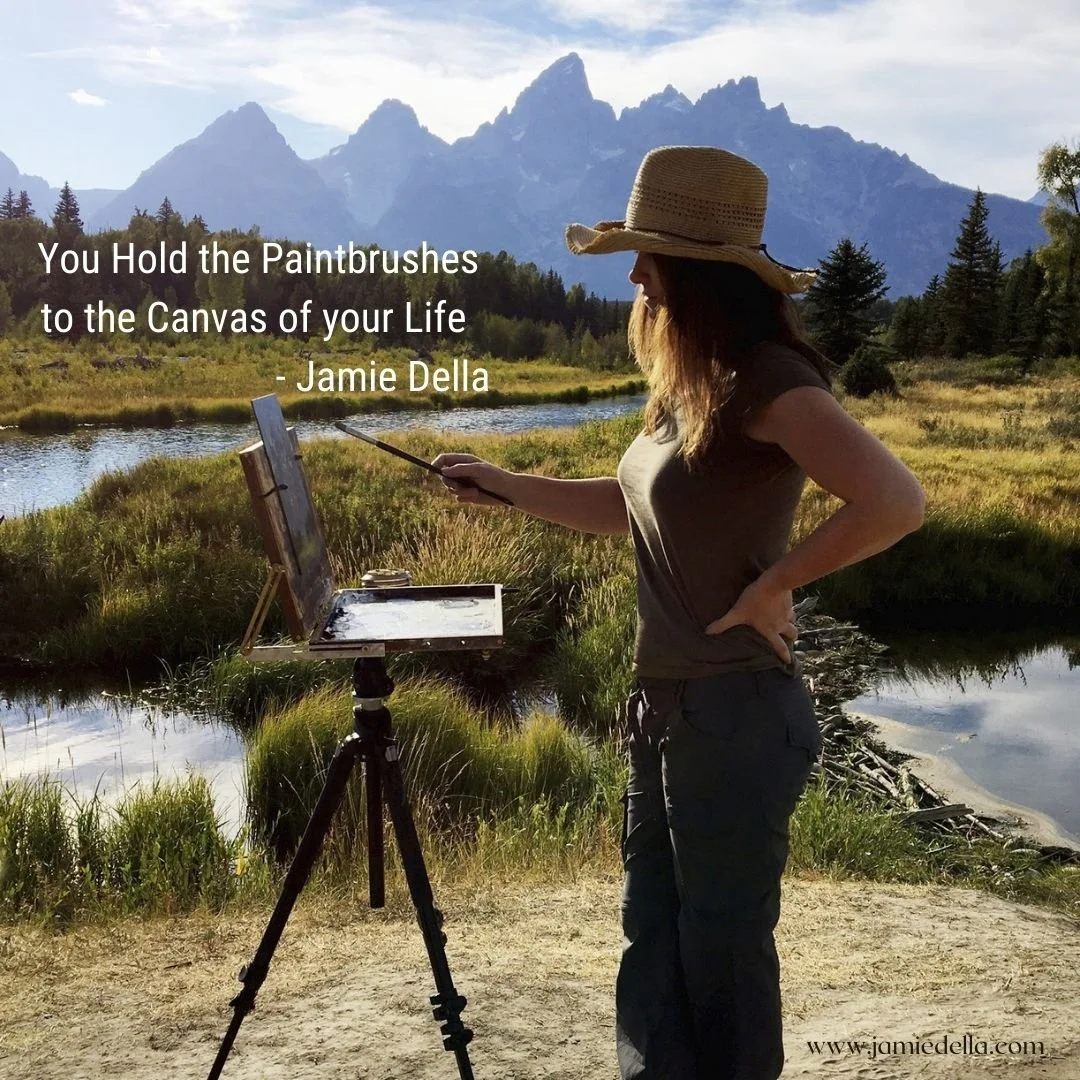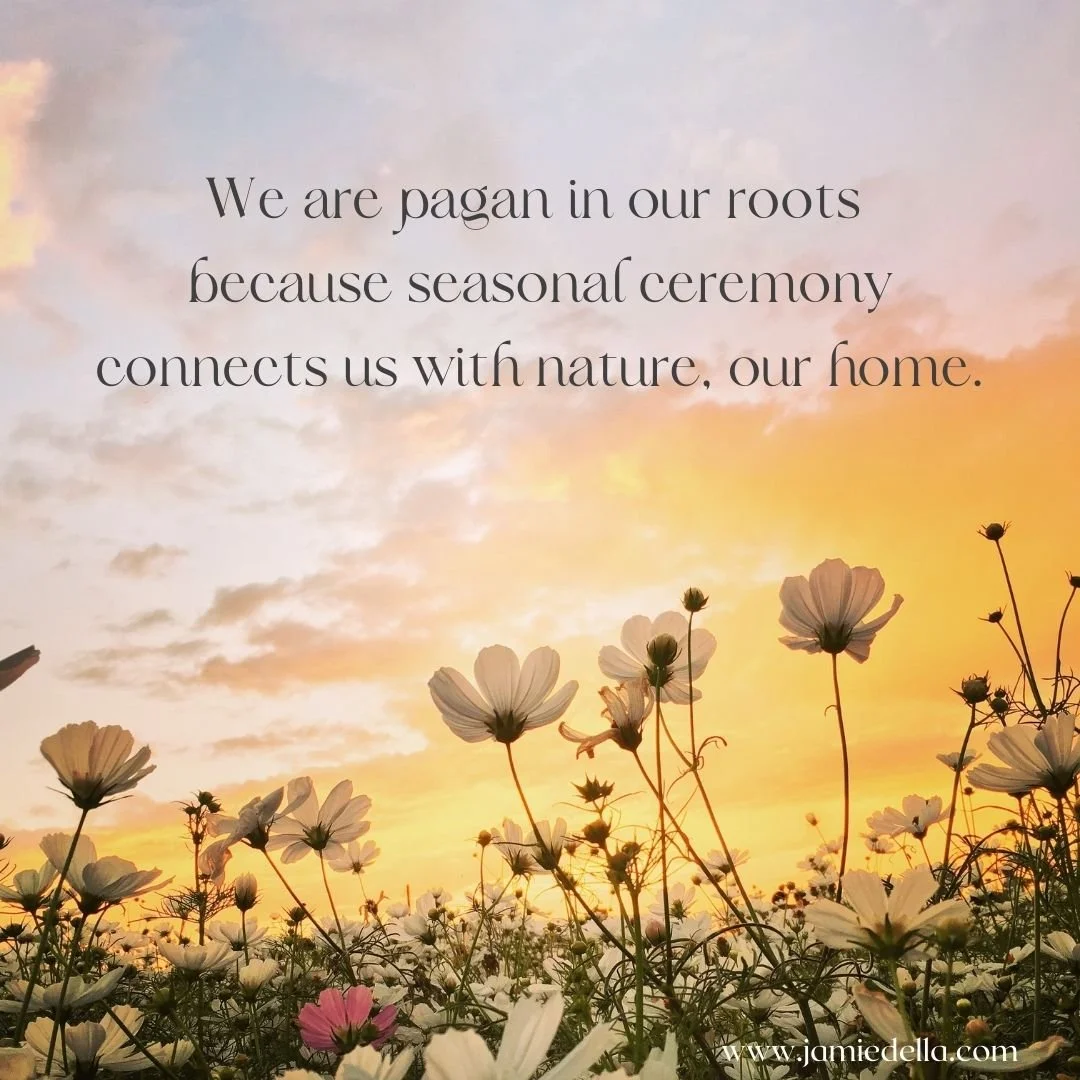My Wiccan Witchcraft Practice
One of the misconceptions about Wicca is that once you choose this path, Christ Consciousness is something to be left behind. This is not the case. You can embrace many spiritual traditions at once, creating an intimate amalgam of your perception of the Divine Source.
I was raised Christian Science which teaches that we are all children of a Father/Mother God, just as Jesus was. The difference was that Jesus truly understood his connection to divinity and this is how he healed others. Our path to miracles and manifestation requires the same faith in oneself as a Divine reflection. I like to say that you hold the paintbrushes to the canvas of your life. Not every Wiccan holds the same notion of divinity or Christ - however I see many points of connection.
Wicca is a protected and recognized religion that arose in the 1950s in America, primarily through the writings and teachings of Gerald Gardner. He had a rather strict practice and over the years, the religion has found many, many branches - some that are Ceremonial (almost Catholic in structure and hierarchy), others based on Folk Magick or Kitchen Magick (think grandma's superstitions or the local herbalist), and still others based on High Magick, the practice of the Craft that focuses magick on connecting with the Light and Divine Source. Some covens require a system of learning where one is awarded different colored cords representing gained knowledge (the cord system reminds me of the martial arts).
I spell Magick with a “K” because this denotes a spiritual field of awareness activated by the “G” representing the ground or Mother Earth and the “K” representing the sky and Heavenly Father. Like a Venn diagram, the intersection is where we exist and where Magick happens. This lifestyle is a constant conversation with the natural and supernatural worlds, seeking an intimate relationship with the mystery, divinity and beauty that connects us all.
Witchcraft is considered a lifestyle. Not every Wiccan will consider themselves to be a Witch and not every Witch is a Wiccan - yet both words have the same etymology and derive from the word "wise."
We are wise because we study herbal lore so that we can be healers of the physical, mental and emotional bodies.
We are wise because we live seasonally, taking guidance from the ebb and flow of nature.
We are wise because we see ourselves as a reflection of the Divine Source, like a ray of sunshine that contains all the divinity of the sun but expresses itself in a unique way.
We also have a version of the Golden Rule in the Threefold Law, meaning what you do will come back to you three times - this could be three levels such as emotional, physical and mental or three incidents. Not everyone even believes in this basic karma, which is bewildering to me, but varying notions of accountability is present in all corners of the world.
The Goddess has been at the forefront of the Wiccan and Witchcraft traditions to elevate the Divine Feminine to once again balance the energies in this world and mellow out the patriarchy.
Even though Wicca/Witchcraft is considered a polytheistic faith, many practitioners recognize a singular Divine Source. Gods and Goddesses of different pantheons around the world are personified characteristics of the Divine, with their own lore and territory of concern, i.e., Goddess Kuan Yin's compassion, Athena's strategy, Brigid's inspiration. These deities are much bigger than a personality trait and exist somewhere between archetype and angelic realm. Witches and Wiccans honor deities from pantheons all over the world including UK, Norse, Egyptian, etc. The Orisha deities of the Yoruba religion are gaining in popularity and in my experience require a lot more presence, respect and devotion - quite possibly because it takes more effort to understand a concept of deity that arose from an ancient culture that is foreign to the Western world.
Spell originates from the meaning "to cast your word." A spell is a playful prayer in 3D. Since we are the Divine reflection of Creative Source, we give meaning to everything. For me, spellwork is about aligning with the feeling you want to attract and the altar is like creating a vision board for the Divine to work through you, as you. A spell begins with a clear intent. One then collect items that represent the desire to place on an altar (possibly a feather for inspiration or something red for passion, etc.), create a sacred space, write and speak a rhyme (to bypass your logical brain) that clearly states your desire, give an offering in exchange (could be a bowl of water or lit candle or incense, or food as in Dia de los Muertos), give thanks and patiently wait for "this or something better."
Primarily Wicca is an agricultural religion that celebrates eight holidays known as the Wheel of the Year or Mandala of Nature - solstices, equinoxes and planting and harvesting festivals. These pagan (derived from the word country) holidays are known as Sabbats. Check out my definition of the Pagan Sabbats on my YouTube Channel.
One of the easier Sabbats for people unfamiliar with pagan traditions to connect with is Ostara, also known as Spring or Vernal Equinox. You will find many similarities of traditional worship, such as birth, continuity of life, beginnings. Did you know that Easter (once known as Eostre and before that Ostara – meaning morning star) occurs on the first Sunday after the full moon after the Spring Equinox?
We are pagan in our roots because seasonal ceremony connects us with nature, our home. I wrote this blog for a couple of women in my SoulCollage® cohort who have asked me to help them better understand the Wiccan and Witchcraft practices because they have family members who practice the Craft and want to better understand. I hope this helps you better understand these practices shrouded in mystery and propaganda. Blessed be.





